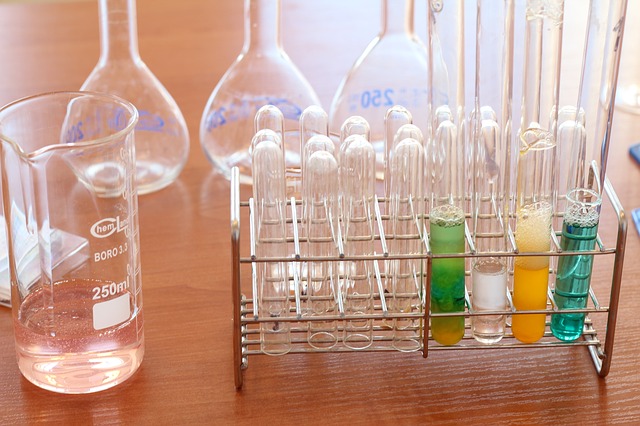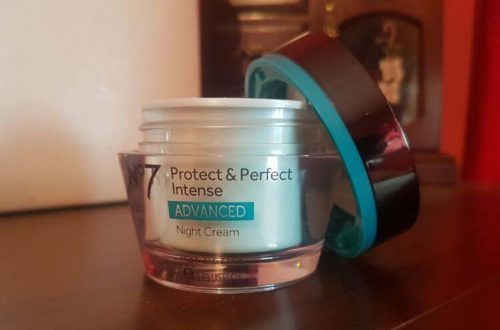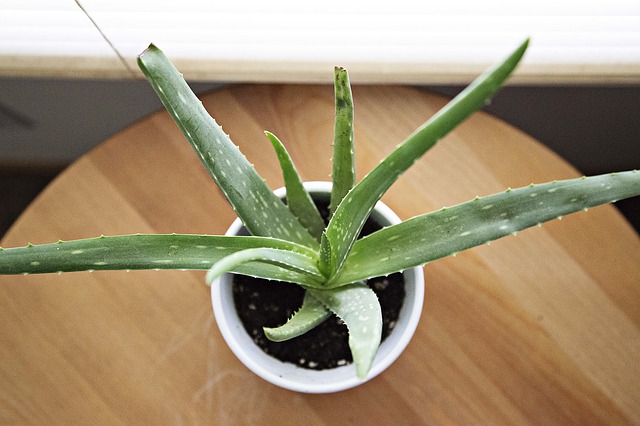
The Benefits of Hyaluronic Acid for the Skin
So, what are the benefits of hyaluronic acid for the skin and why is it considered one of the top anti-aging ingredients? Any time I’m researching the best skin best products or anti-aging ingredients, I’m coming across this one time and time again so I decided to dig in a little deeper to find out what this popular ingredient has to offer.
Despite the fact that it has the scary word acid in its name, it’s not an ingredient that you need to fear, in fact, quite the opposite. It has a lot of benefits when used in skincare and has become an extremely popular ingredient for those very reasons. As well as being packed full of anti-aging properties, it is also gentle, making it suitable for all skin types.
 What is Hyaluronic Acid
What is Hyaluronic Acid
Hyaluronic acid is a glycosaminoglycan which is basically a type of molecule that is actually already present throughout the body particularly in the eyes, connective tissues, and the skin. It fills the spaces between the cells of the skin and other connective tissues and is a major ingredient of the synovial fluid that lubricates and cushions joints.
This naturally produced molecule is a very important component of skin because it is involved in the repair of tissues. This means that it supports overall skin health but it also supports moisture balance too which is important when it comes to aging skin and because the body produces less of it as we age, this contributes to the loss of moisture.
It’s also worth noting that because this is a naturally produced ingredient, it is considered as an acceptable addition to many natural skin care products.
Benefits of Hyaluronic Acid
Hyaluronic acid has quite a few benefits for the skin but it is mostly renowned for its ability to hold large amounts of moisture. As we age, our skin has a tendency to lose moisture which can then lead to the loss of its full and tight appearance. Products containing hyaluronic acid can help retain that moisture and revive that fullness and volume leading to a more youthful looking appearance.
That same ability is actually the reason why it is used in many dermal fillers and although the results of topical application won’t be the same as having fillers, it still provides enough benefits to help reduce the appearance of fine lines and wrinkles by adding moisture to the skin to plump it out and make it appear smoother.
Because of its moisture retaining properties, this can also help to strengthen the skin’s protective barrier. It also has antioxidant properties which can help protect the skin against free radical damage which is a common cause of aging skin and anti-inflammatory properties which can help reduce redness and inflammation.
 Does Hyaluronic Acid Penetrate the Skin
Does Hyaluronic Acid Penetrate the Skin
There is one issue with hyaluronic acid and that is the fact that it’s too large in molecular size to be able to penetrate the skin. So you may be wondering, why even bother adding it to skin care products if that’s the case? Well, hyaluronic acid needs to be bioengineered to decrease its molecular weight in order for it to be able to penetrate the skin and this is where some products prove more effective than others.
Although many skin care brands do this, many others do not, and the fact that it’s often not stated makes it nearly impossible to tell if your hyaluronic acid product is penetrating the skin or not. Hyaluronic acid is an extremely effective moisturising ingredient so even without skin penetration, it can provide an intense moisture barrier to the surface of the skin leaving you none the wiser.
This can make it extremely difficult to know which hyaluronic acid product to buy. I’m currently compiling a list which I will link to shortly. There is also a very similar ingredient that goes by the name of sodium hyaluronate which is another form of hyaluronic acid that is just as beneficial and more commonly used in skin care products.
Click here for the best and most effective hyaluronic acid product for skin.
What is Sodium Hyaluronate
Sodium Hyaluronate is very closely connected to hyaluronic acid in that it is a salt derived from it. Its main difference is that it is much smaller in molecular size which means that it can penetrate through the skin much easier, this, in turn, makes it the ideal form of hyaluronic acid for topical application. Although the smaller the molecular size, the less moisturising it becomes.
Despite their slight differences, because they are so closely related, hyaluronic acid and sodium hyaluronate are often referred to as one and the same and as such their names are often used interchangeably in the skincare world so don’t be surprised if when you check the ingredients of your hyaluronic acid product, you find the ingredient sodium hyaluronate instead. It’s also not unusual to see both forms added to the same product.
 Things to Watch Out For
Things to Watch Out For
There are a few things that you need to watch out for and one of those is that care should also be taken by those living in warm dry climates with low humidity as the hyaluronic acid could potentially pull the moisture from the skin instead of from the air leading to the opposite effect of excessive skin dryness. To counteract this effect, it is best to apply a good moisturising cream over the top of your hyaluronic acid product.
There is also the fact that many pure hyaluronic acid products often contain problematic ingredients such as drying alcohols which will undo any beneficial effects of the hyaluronic acid. Benzyl alcohol which is an aromatic alcohol seems to show up the most because it’s technically a natural ingredient but most companies use a synthetic version that can cause dryness and irritation to the skin.
Which Products Contain It
Hyaluronic acid can be found in many skin care products including moisturisers, serums, eye creams and skin-repairing creams. It can also be found in a more concentrated form that can be added to your existing skin care products.
One important thing to note is that like all important skin care ingredients, you would want to find them listed somewhere near the top of the ingredients label. Skin care companies tend to list their ingredients in descending order starting with the largest amount first so the lower down the label means the lower the quantity.
Final Thoughts
There’s no doubt that hyaluronic acid deserves its place in the skincare world but it’s definitely an ingredient that needs a lot of research first to make sure you’re buying the most effective product. It seems like nothing is ever clear cut in the skincare world and Hyaluronic acid is certainly no exception.
If you have any thought or opinions on the subject, then I love to hear them, so please feel free to leave a comment below.






2 Comments
shrey
I never knew how important hyaluronic acid was and to be honest, I never knew why it existed in all the skin care products that I have been using.
I was just looking into the ingredients in my face cream which actually doesn’t suit my skin and thought maybe this ingredient could possibly be the reason I have irritation issues whenever I apply the cream, is that possible?
Jessie
Hi Shrey
It could be any number of ingredients causing you irritation. Hyaluronic acid is found naturally in the body and skin but there’s often other things added to it when you find it in skincare products. You could be sensitive to it but normally it’s something else in the formula. There could be drying alcohols, fragrances or preservatives in there that could be causing the problem (they’re the most common culprits). It really could be anything.
Hyaluronic acid can cause you problems if you live in a dry climate and you’re not putting a good moisturiser over the top of it. If it’s not the dry climate then your best bet is to stop using the cream and speak to a dermatologist about getting a patch test done to see what ingredients your skin is reacting to. At least then you’ll know for sure which ingredients you need to avoid. I hope that helps.